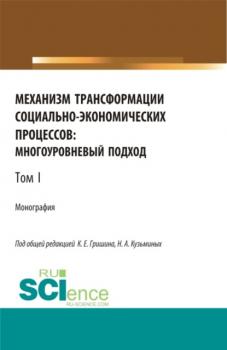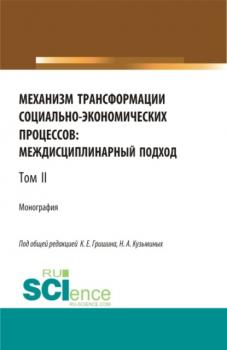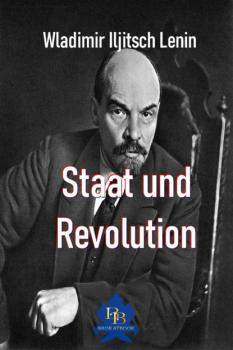ТОП просматриваемых книг сайта:
Социология
Различные книги в жанре Социология, доступные для чтения и скачиванияГенезис теории и практики социально-кульутрной деятельности: комплексный анализ диссертационных исследований второй половины XX – начала XXI века. (Аспирантура, Бакалавриат, Магистратура). Монография. - Евгений Викторович Тараторин
Аннотация
В настоящей научной монографии осуществлен комплексный анализ диссертационных исследований по научной специальности 13.00.05 «Теория, методика и организация социально-культурной деятельности». Материал монографии структурно представлен в пяти тематических главах. Первая глава монографии посвящена изучению процесса становления и развития теории и практики социально-культурной деятельности, вторая – рассмотрению подсистем культуры как объекта исследования, третья – обоснованию педагогических методов, методик и технологий социально-культурной деятельности, четвертая – описанию объектов исследования, касающихся культурно-досуговой деятельности, пятая – рассмотрению социальных (социально-педагогических) технологий социально-культурной деятельности. Монография адресована бакалаврам и магистрантам, обучающимся по направлению подготовки 51.03.03 (51.04.03) «Социально-культурная деятельность», аспирантам, работающим над диссертационными исследованиями по научной специальности 13.00.05 "Теория, методика и организация социально-культурной деятельности", а также по специальности новой номенклатуры: 5.8.1 «Общая педагогика, история педагогики и образования». Материалы монографии могут стать теоретико-методологической базой для воплощения новых перспективных педагогических исследований научных сообществ, а также обоснованием методических разработок и проектов специалистов-практиков социально-культурной сферы. В приложении монографии представлен справочник, содержащий перечень объектов и предметов (средств) диссертационных исследований, научных подходов и аспектов исследований, аудитории и базы реализации научных работ, а также условия, в которых реализовались диссертационные исследования по научной специальности 13.00.05 «Теория, методика и организация социально-культурной деятельности».
Механизм трансформации социально-экономических процессов: многоуровневый подход.Том 1. (Бакалавриат, Магистратура, Специалитет). Монография. - Лилия Сабиховна Валинурова
Аннотация
Монография посвящена исследованию актуальных вопросов и проблем трансформации социально-экономических процессов с позиций многоуровневого подхода, где раскрываются закономерности, факторы и инструменты трансформации социально-экономических процессов, представляется иерархический анализ региональных систем воспроизводства, рассматриваются трансформационные процессы финансовой сферы и механизм трансформации социальной сферы. Результаты исследования будут востребованы студентами, аспирантами, преподавателями, предпринимателями, руководителями предприятий, органами власти и специалистами, интересующимися проблемами трансформации в социально-экономической сфере.
Механизм трансформации социально-экономических процессов: многоуровневый подход.Том 2. (Бакалавриат, Магистратура, Специалитет). Монография. - Лилия Сабиховна Валинурова
Аннотация
Монография посвящена исследованию актуальных вопросов и проблем трансформации социально-экономических процессов с позиций междисциплинарного подхода, где раскрывается влияние развития информационно-коммуникационных технологий на экономический рост, отражается цифровая трансформация социально-экономических процессов, представляется экосистемный подход к исследованию предпринимательства, рассматривается хозяйственная жизнь и экономическое развитие в социокультурном контексте через призму семиотики и т. д. Результаты исследования будут востребованы студентами, аспирантами, преподавателями, предпринимателями, руководителями предприятий, органами власти и специалистами, интересующимися проблемами трансформации в социально-экономической сфере.
Аннотация
Die Schrift Staat und Revolution verfasste Lenin im August bis September 1917 in der Illegalität. Den Gedanken, dass es notwendig sei, die Frage des Staates theoretisch auszuarbeiten, hatte Lenin in der zweiten Hälfte des Jahres 1916 geäußert. Damals schrieb er die Notiz Jugend-Internationale, in der er die Position Bucharins in der Frage des Staates kritisierte und versprach, einen ausführlichen Artikel über die Frage Marxismus und Staat zu schreiben. In einem Brief an A.M. Kollontai vom 17. Februar 1917 (neuen Stils) teilte Lenin mit, dass er das Material über die Frage Marxismus und Staat fast fertig vorbereitet habe. Es ist eine Sammlung von Zitaten aus Werken von Karl Marx und Friedrich Engels nebst Auszügen aus Büchern von Kautski, Pannekoek und Bernstein mit kritischen Bemerkungen, Schlussfolgerungen und Verallgemeinerungen W.I. Lenins. Nach dem ursprünglichen Plan sollte die Schrift Staat und Revolution aus sieben Kapiteln bestehen, doch hat Lenin das letzte, VII. Kapitel, Die Erfahrungen der russischen Revolutionen von 1905 und 1917, nicht geschrieben. Erhalten ist nur ein ausführlich ausgearbeiteter Plan dieses Kapitels. Zur Herausgabe des Buches schrieb Lenin in einer Notiz an den Verleger, falls er sich «mit der Beendigung des VII. Kapitels zu sehr verspäten oder es übermäßig anschwellen sollte, müsste man die ersten sechs Kapitel gesondert, als ersten Teil erscheinen lassen …»
Аннотация
The notion of ‘immigrant integration’ is used everywhere – by politicians, policy makers, journalists and researchers – as an all-encompassing framework for rebuilding ‘unity from diversity’ after large-scale immigration. Promising a progressive middle way between backward-looking ideas of assimilation and the alleged fragmentation of multiculturalism, ‘integration’ has become the default concept for states scrambling to deal with global refugee management and the persistence of racial disadvantage. Yet ‘integration’ is the continuance of a long-standing colonial development paradigm. It is how majority-white liberal democracies absorb and benefit from mass migration while maintaining a hierarchy of race and nationality – and the global inequalities it sustains. Immigrant integration sits at the heart of the neo-liberal racial capitalism of recent decades, in which tight control of nation-building and bordering selectively enables some citizens to enjoy the mobilities of a globally integrating world, as other populations are left behind and locked out. Subjecting research and policy on immigrant integration to theoretical scrutiny, The Integration Nation offers a fundamental rethink of a core concept in migration, ethnic and racial studies in the light of the challenge posed by decolonial theory and movements.
Аннотация
At century’s close, American social scientists, policy analysts, philanthropists and politicians became obsessed with a fearsome and mysterious new group said to be ravaging the ghetto: the urban “underclass.” Soon the scarecrow category and its demonic imagery were exported to the United Kingdom and continental Europe and agitated the international study of exclusion in the postindustrial metropolis. In this punchy book, Loïc Wacquant retraces the invention and metamorphoses of this racialized folk devil, from the structural conception of Swedish economist Gunnar Myrdal to the behavioral notion of Washington think-tank experts to the neo-ecological formulation of sociologist William Julius Wilson. He uncovers the springs of the sudden irruption, accelerated circulation, and abrupt evaporation of the “underclass” from public debate, and reflects on the implications for the social epistemology of urban marginality. What accounts for the “lemming effect” that drew a generation of scholars of race and poverty over a scientific cliff? What are the conditions for the formation and bursting of “conceptual speculative bubbles”? What is the role of think tanks, journalism, and politics in imposing “turnkey problematics” upon social researchers? What are the special quandaries posed by the naming of dispossessed and dishonored populations in scientific discourse and how can we reformulate the explosive question of “race” to avoid these troubles? Answering these questions constitutes an exacting exercise in epistemic reflexivity in the tradition of Bachelard, Canguilhem and Bourdieu, and it issues in a clarion call for social scientists to defend their intellectual autonomy against the encroachments of outside powers, be they state officials, the media, think tanks, or philanthropic organizations. Compact, meticulous and forcefully argued, this study in the politics of social science knowledge will be of great interest to students and scholars in sociology, anthropology, urban studies, ethnic studies, geography, intellectual history, the philosophy of science and public policy.










